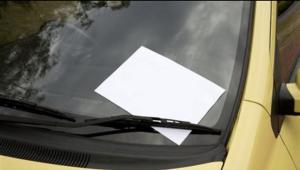I too have decided, after investigating everything accurately anew, to write it down in an orderly sequence for you, most excellent Theophilus, so that you may realize the certainty of the teachings you have received. (Luke 1:3–4).
Lawyers like to say that if the facts of a case are in your favor, pound the facts. If the legal precedents are in your favor, pound the law. If you don’t have either facts or law on which to pound? Then pound the table.
From the way a lot of Catholic apologists present evidence for the arguments they make, you’d think they have either facts or precedent on their side. A cursory skim of their materials will turn up a lot of references to Scripture, canon law, and the Catechism of the Catholic Church. When I did apologetics reviews during my years as a professional apologist, I always knew I could safely allow my eyes to glaze over and read on autopilot when I got to the huge chunks of quotations from the Bible, the Church Fathers, and papal documents.
Why? Because apologists who used this method of arguing were not actually trying to persuade anyone to accept their conclusions. Rather, they were engaging in an information dump, intended to overwhelm audiences into accepting Catholic teaching on the sheer volume of evidence presented.
Occasionally, these information dumps backfired. Once, I was tasked with providing an alternative viewpoint to an essay that had “gone viral” on social media, igniting a firestorm of outrage at the position the author defended. When I dug into the piece, fact-checking its references, I was amused to note that the author had cited the Catechism incorrectly, and I took full advantage of that oversight in my rejoinder.
When apologists rely on information dumps to persuade their listeners, it’s all too easy for them to get lost in the weeds they’ve sown.
I can hear the response already. “Hey, Michelle, Jesus quoted Scripture to prove his points, too, you know.”
Yes, occasionally, he did. In this week’s Gospel, Jesus reads from Isaiah, then tells his hometown, “Today this Scripture passage is fulfilled in your hearing” (Luke 4:21). While initially impressed, the Nazarenes’ attitude changed when Jesus implied that they had no faith, then proved his point by attempting to throw him off a cliff (vv. 29–30).
Nonetheless, Jesus didn’t actually rely on Scripture to establish his authority. The miracles he performed were the signs from heaven that authenticated his message (CCC 548). While his learning was remarked upon (John 7:15), he was acclaimed because his audiences had never heard anyone like him (Mark 1:22).
What impressed people the most about Jesus wasn’t his rhetorical brilliance. Not that Jesus couldn’t hold his own in a debate when he wanted to, of course. The Gospels refer several times to scholars of the law—the theological ancestors of today’s Apologist Bros who like to create rhetorical traps for the unwary on social media—who tried to trip up Jesus with trick questions. Sometimes he answered them, sometimes he didn’t. But he treated their questions almost like one might treat distractions from street-corner hecklers.
Rather, Jesus focused on meeting people where they were and helping them with the problems they had. When he saw Zacchaeus sitting in a tree, he singled out Zacchaeus as the person with whom he wanted to stay in Jericho. Doing so moved Zacchaeus to repentance for tax-gouging, which, in turn, led to Zacchaeus being able to re-establish his reputation among his neighbors (Luke 19:1–10).
When Jesus met the woman at the well, he asked her for a drink of water. This led to conversation, bringing to light her marital history. When she ran back to her town to spread the news that she’d found the expected Messiah, she said, “Come, see a man who told me all that I ever did. Can this be the Christ?” (John 4:29). What mattered to her wasn’t Jesus’ ability to cite the prophets, but the fact that he cared about her.
The “new apologetics,” which began in the late 1970s, started out as a means of answering questions people had. When Karl Keating discovered an anti-Catholic tract on his windshield after Mass, he wrote out a response, printed it out in tract form, and distributed it to the windshields of cars in the parking lot of the church that sponsored the anti-Catholic tract. Later, when he received letters from people wanting more information on Catholic teaching, he wrote more tracts.
Eventually, more Catholics were inspired to learn their faith and go and do likewise. Conversions resulted, and the new converts got in on the action, sharing their stories of how they became Catholic and why they thought everyone else should become Catholic too. Soon enough, apologetics became an industry, complete with books, audio and video lectures, debates, magazines, and web sites.
Somewhere along the way though, the personal touch in apologetics was lost. Instead of answering problems people had, the focus shifted to telling people how they should behave—how to vote, how to get married, how to raise children, even how to dress.
The intention behind this shift was mostly good—there really are people out there who want to know how a Catholic apologist thinks they ought to fill out a ballot, find the right spouse, raise their kids, and choose their clothes. Instead of discerning the real problem behind these questions though, which is that there are a lot of scrupulous people in the world, apologists accepted the opportunity to become gurus.
While some Catholics welcomed this micromanagement of their lives from apologists, many more Catholics did not. And, frankly, rightly so. But what has been most interesting to me in the past few years is how many Catholics I’ve met who were once part of the conservative constituency who looked up to the New Apologists for guidance in their faith—and who are now “deconstructing” (re-examining the faith to determine if it really is true).
This deconstruction is, I believe, a direct consequence of the New Apologetics, which was built on an uncritical amassing of Scripture, patristics, and Church documents to promote various agendas. For example, when Catholics are told that they absolutely must not vote for a certain political party lest they risk going to hell (and, here, have a truckload of cherry-picked quotes from Church documents to prove it)—even when their intent is to block the rise of a dangerously unqualified authoritarian—many Catholics are eventually going to question the underlying premises of such arguments.
As with all idols, the New Apologetics will eventually fall. Fortunately, Christ didn’t build his Church upon apologetics. Even if hell swallows up the New Apologetics, Christ promised that his Church would endure (Matt. 16:18).
Michelle Arnold was a staff apologist for Catholic Answers, a Catholic apologetics apostolate in the Diocese of San Diego, California, from 2003–2020, answering questions from clients about the Catholic faith via phone, letter, email, and online platforms. She contributed essays to Catholic Answers’ online and print magazines, and wrote four booklets for the apostolate’s 20 Answers series. Her 20 Answers booklets were on Judaism, the New Age, witchcraft and the occult, and the Church’s liturgical year. Now a freelance writer, editor, and proofreader, Michelle Arnold has a blog at the Patheos Catholic channel. A portfolio of her published essays is available at Authory.













